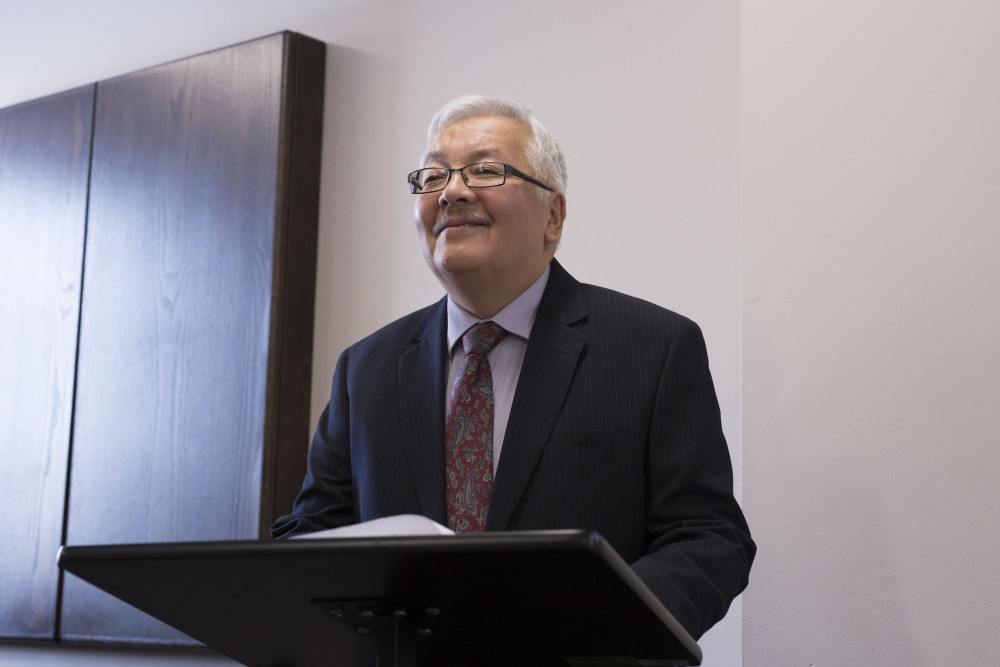Applicants for the director of Student Counseling Services presented to the public their visions for the mental health organization at the University of Minnesota.
In a series of presentations this week, candidates outlined their ideas for expanding care and treating mental health conditions. The SCS director position — which is responsible for determining the staff, policies and approach of the service — has been open since August, when the former director, Glenn Hirsch, retired.
The candidates’ presentations were critiqued by students and faculty in the audience, who rated them on a scale from poor to excellent.
Vice Provost Maggie Towle will use the feedback when naming the new director, which she aims to select within the next month.
The candidates for the position will also receive the evaluations to better understand what students want from SCS, said Alisa Eland, who directs counseling at International Student and Scholar Services.
“Students are exactly who is being served … so it’s really important to hear from students what they’re looking for,” she said.
Reports of mental health conditions at the University have risen from 33 percent to 42 percent over the last three years, according to the College Student Health Survey. How the new director responds to increased demand for mental health services is important, Eland said.
“Students are under so much stress in so many ways,” she said. “All of these ways that the director impacts the organization will … directly impact students.”
The three candidates for the position presented their aspirations for SCS at Coffman Memorial Union before an audience of about 30 faculty and students.
Jerry Shih, who has served as the interim director of SCS since August, said he wants to find new ways to connect with students who would otherwise not reach out to SCS.
Methods to expand the organization’s reach include embedding counselors in every college at the University and expanding services to West Bank, he said. Currently the only colleges with embedded counselors are the College of Liberal Arts and Carlson School of Management, he said.
“The Washington Avenue bridge may not seem like a huge barrier, but for students who have all their classes over on West Bank, getting over to [the SCS office at] Appleby Hall may be challenging,” Shih said.
Claire Haiman, the director of mental health services at Columbia University’s Student Health Service, was the only outside applicant.
Haiman said she hopes to establish behavioral intervention teams to track mental health issues and create a central call line that would immediately connect students to the services they need.
She also proposed training community advisors and financial counselors to discuss depression and suicidal thoughts with students.
Vesna Hampel-Kozar, a staff psychologist at SCS, said she would focus on forming partnerships with student groups and other University services as director.
She also wants SCS to expand its group counseling services to build a support system between students and their peers.
“[In some cases] the most appropriate level of support for a student is from a really well-trained peer,” Hampel-Kozar said. “[Peers can] really understand from their own mental health journeys … what might be useful for students.”

















